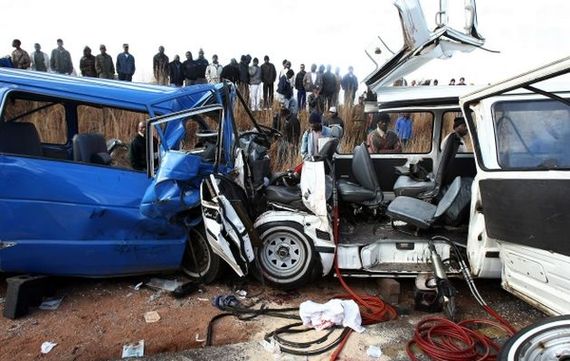Last week, General Motors acknowledged that the death toll on its defective ignition switch hit 100. Sadly, the final count will likely be higher as a total of 4,300 claims have been filed against General Motors for the defect so far.
As Americans, we continue to be appalled by these incidents of sub-par engineering and cover-ups. We expect that cars sold here meet or exceed the absolute highest safety standards. We demand that when lives are lost because companies failed to ensure their vehicles were safe those companies are held accountable. And, as evidenced by the General Motors case, they are.
But the standards we hold automakers to here in the U.S. are not the same in many third-world countries. And while those companies tell us they value safety here, that value isn't carried over to many other places where they do business.
That's a dangerous double standard -- not just to the people driving the cars, but to the companies that make them.
I have traveled extensively in South America, Africa and Asia, and each time I climb into a car on foreign soil, I am struck by how grossly different vehicle safety standards are across the globe -- particularly in third-world countries.
Cars manufactured for third-world countries offer little or no safety equipment. Automakers treat safety as a local compliance issue and only 28 countries have adequate laws addressing safety.
Isn't it time to hold automakers accountable to everyone who drives or rides in their cars, regardless of where those cars are sold and how much people paid for them?
From a brand perspective, customers expect products to be safe everywhere. The promise of safety is an attribute of the brand and it should know no borders. Most American consumers renting a car anywhere in the world expects that car to be just as safe as what they drive at home.
Yet the seatbelts, airbags and other basic safety features that we consider standard here are absent in the vehicles these automakers ship to many other countries. Manufacturers claim they can't afford to those features into the cars because they won't be priced competitively in those markets.
But consider this: According to the World Health Organization, 1.24 million people die of road traffic related injuries worldwide each year. That's one person killed every 25 seconds. How many of those deaths could have been prevented if the same safety standards we enjoy were afforded to consumers of cars all across the globe?
How can Ford, G.M. and Toyota justify a double standard on safety? Don't they see that in doing so they are operating with two opposing sets of values?
Global companies must have a single set of values that are consistent across all markets. Most manufacturers claim that safety is a core corporate value they don't back up their principles with action.
These companies can't only value safety in the United States, E.U. and other countries where regulation demands safety standards. It's a standard that they must apply everywhere because the safety of everyone's children and loved ones is a universal tenet regardless of culture or income.
Having global safety standards is not altruistic. It's simply the right thing to do. It's telling your customers that their lives matter, no matter where they are and who is watching.
From a marketing perspective, the manufacturer that leads in adopting global safety standards could actually gain a competitive advantage.
